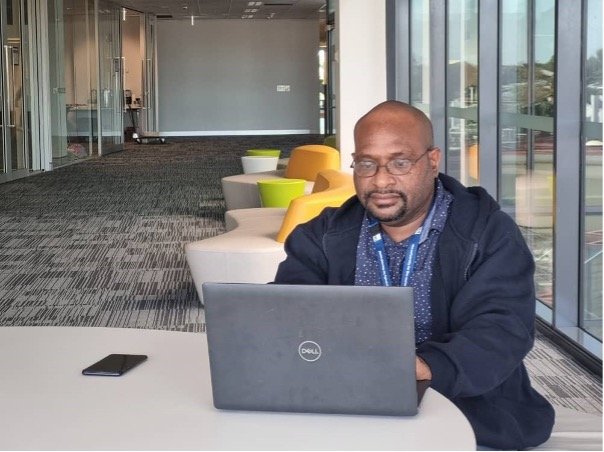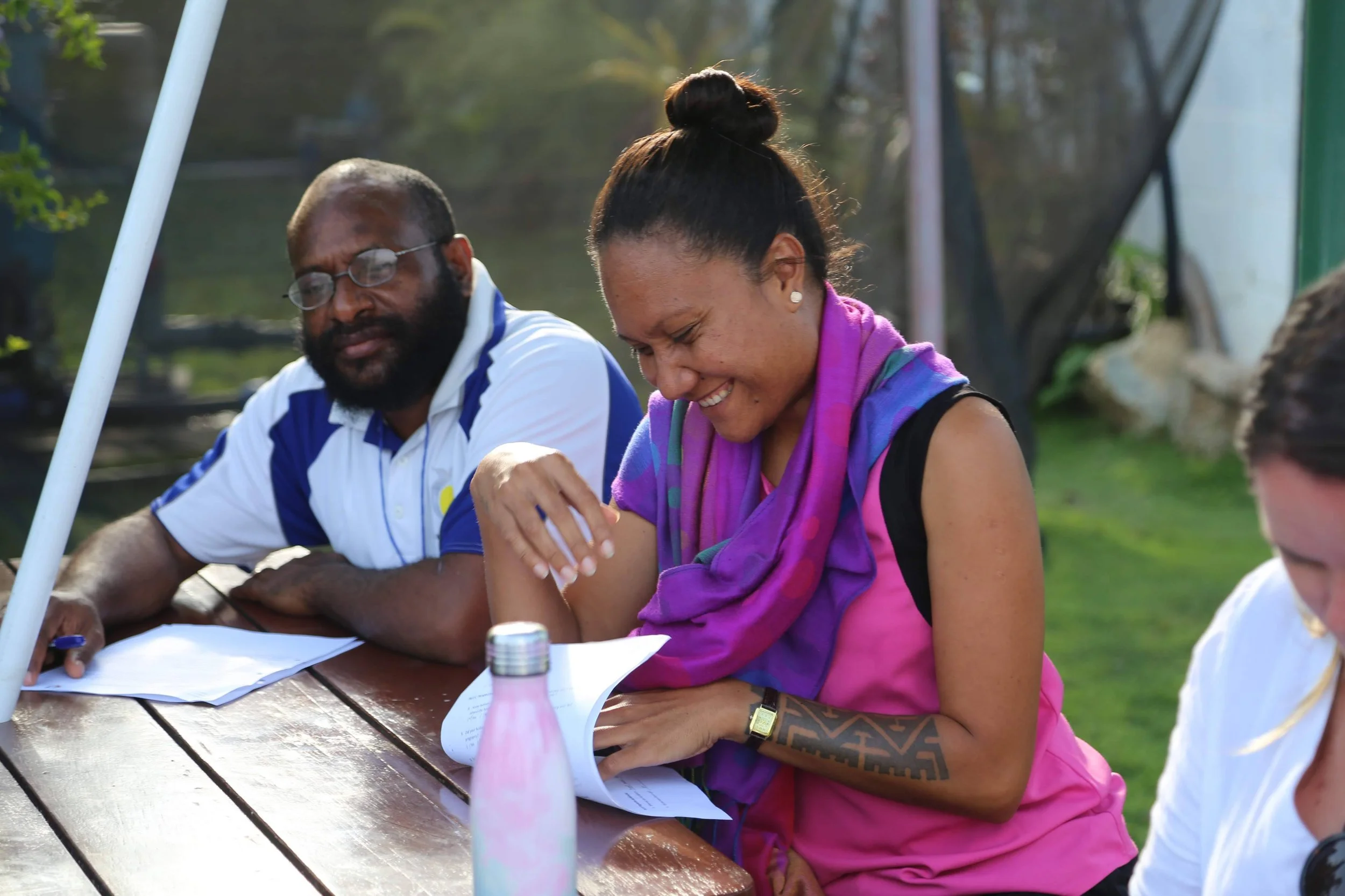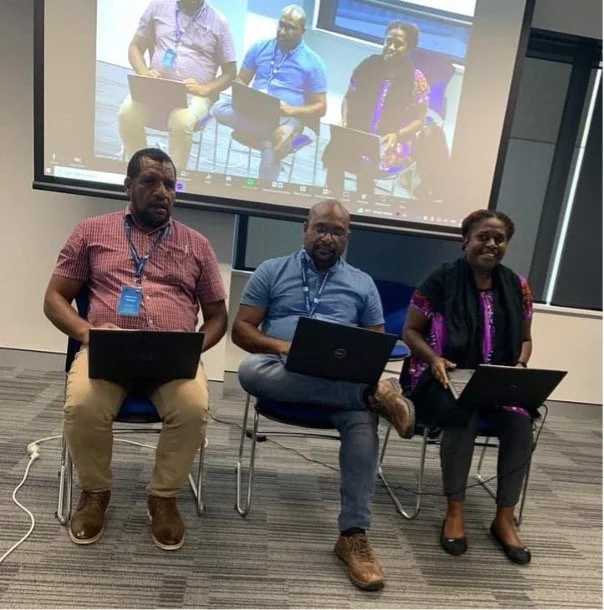Graduate Stories: Stewart
Written by Kirsten Williamson - Epidemiologist at Field Epi in Action
Introduction
We are pleased to introduce Stewart Sarieng Pau. Stewart is a Surveillance Officer at Angau Hospital, Morobe Province and an Advanced Field Epidemiology Training in Papua New Guinea (aFETPNG) graduate. Stewart was awarded Australian Award PNG Scholarship (AAPNG) to study a Graduate Certificate in Disease and Infection Prevention and Control in Brisbane, Australia. Here, Stewart shares his experiences during the course and how he will use what he has learned when he returns to PNG.
Image 1: Working on a course assignment
Image 2: Participating in a group activity as part of the aFETPNG program in PNG
Interview with Stewart
Hello from Brisbane, Australia
Thanks to a recommendation from my employer, I was offered an Australian Award PNG Scholarship (AAPNG). I am currently studying a Graduate Certificate in Health Sciences (Disease Control and Infection Prevention and Control) at the Queensland University of Technology.
I began this course in late 2022 via Zoom, with the first three week course block on Communicable Diseases. I then travelled to Brisbane to undertake the course face-to-face from January to March 2023. I have just completed a course block in Epidemiology and currently studying Leadership in Disaster Management. After this I will study Health Policy in Global Context.
What I am learning now is very relevant. This includes identifying different types of studies, leadership during disaster planning, preparedness, response and recovery. I have also learned more about communicable diseases, especially Neglected Tropical Diseases (NTDs). All of this is building my capacity as a surveillance officer. When I get back to PNG, I will use these skills to enhance my work and try to improve our established surveillance systems.
There are also skills I’ve learned during my work in PNG that have helped me throughout this course. As a surveillance officer assisting the Provincial Disease Control Officer, and as a hospital clinician, I have experience in disease surveillance and outbreak response, as well as risk communication and community engagement.
The Australian culture and the technology was quite challenging at first, but I am adapting to it slowly. The best thing about attending this course in person is that learning face-to-face is more impactful than virtual sessions. The study environment here is very inspiring and motivational. I have found that doing things systematically saves lots of time.
The theoretical aspects of this course, such as lectures, assessments and having to meet deadlines, complement FETP training which is highly practical. I think it helps nurture skills I’ve developed during FETP and take them to the next level. Therefore I would definitely recommend FETP fellows take up courses like this if they have the opportunity.
Image 3: Practicing a media briefing scenario leading a disaster response.
About Field Epi in Action
We facilitate proven high impact intervention-based field epidemiology training, designed to develop work-ready graduates equipped with the necessary tools to support outbreak detection and response.



